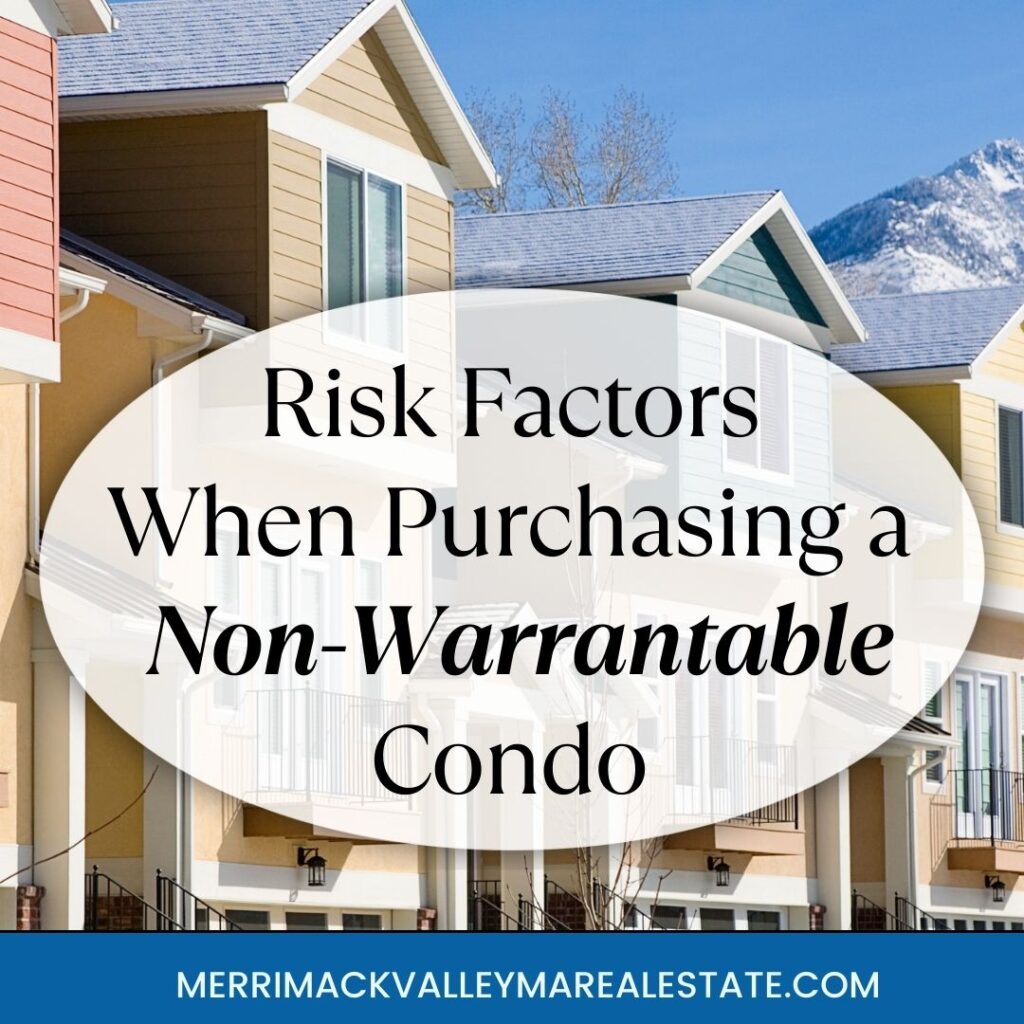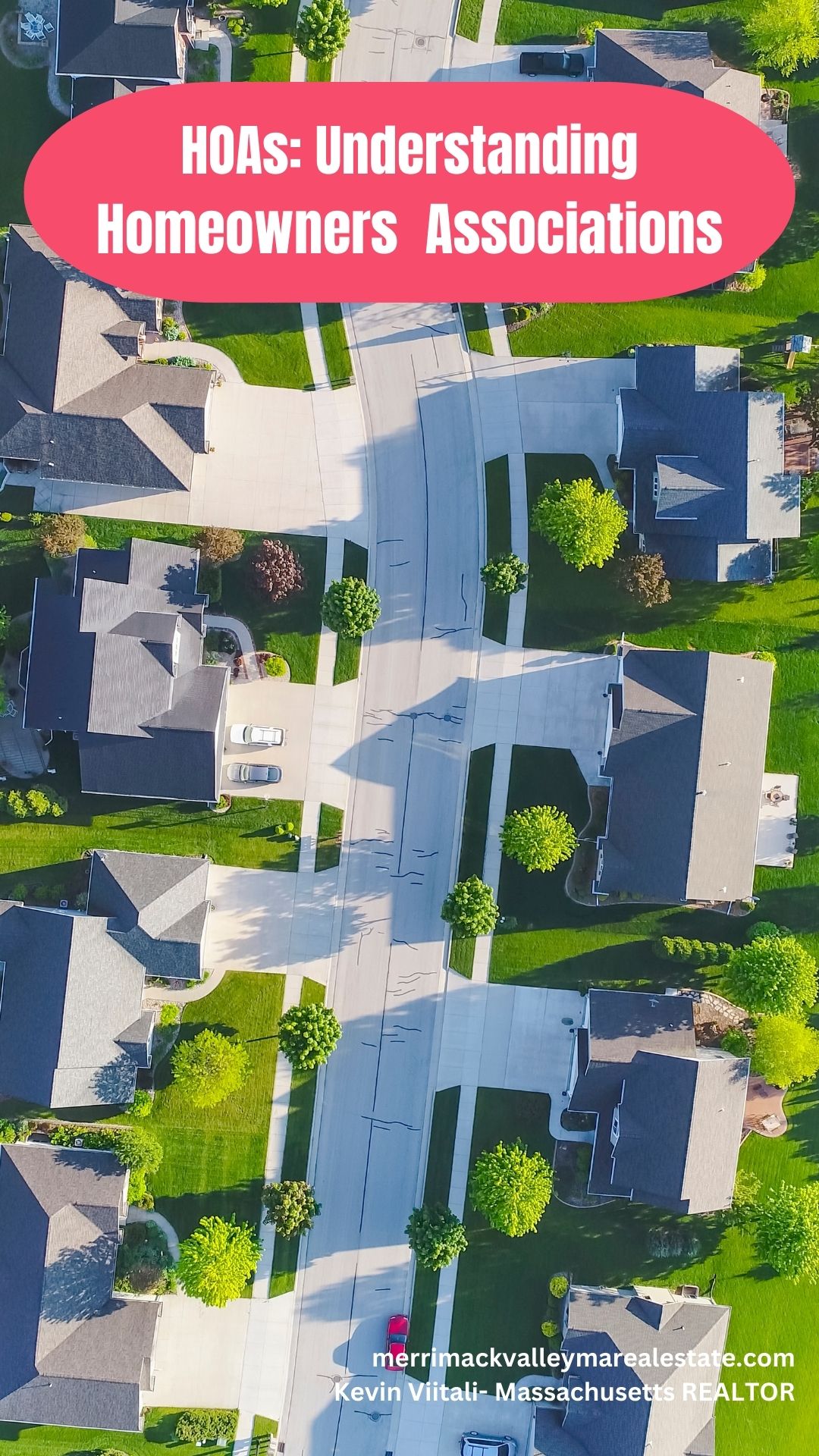
Homeowner associations are often found in New England when discussing a condominium community. However, HOAs are not limited to just condominium complexes; they can also be found in conjunction with subdivisions and more commonly found in newer subdivisions.
Understanding the intricacies of HOAs is crucial for homeowners, as it affects everything from property value to monthly expenditure and community lifestyle.
Buying a condominium or a home subdivision with an HOA requires understanding the Homeowners Association to avoid problems down that road that will hinder the enjoyment of your new home.
Let’s look at what a homeowners association is and how it affects its residents’ everyday lives.
Jump To A Section....
Understanding The Homeowners Associations- Key Concepts
Definition and Purpose of an HOA
A Homeowners Association is an organization that manages a residential community. Its purpose is to ensure the maintenance and continuity of the shared spaces and enforce the community’s rules amongst its members.
The primary purpose of an HOA is to maintain a certain standard and continuity to maintain a certain standard and preserve property values in the community.
Governing Structure of HOA’s
Typically, a Homeowners Association comprises a board of trustees or directors elected by the community. The board is responsible for making decisions regarding the management of the community, including financial, legal and maintenance issues.
The goal is to create a cohesive community for all to enjoy.
Roles and Responsibilities Within A Homeowners Association
The responsibility of the board of trustees is to manage the overall community. While every
Basic tasks for a Homeowners Association (HOA) typically include:
- Enforcing Community Rules and Regulations: Ensuring that residents adhere to the community’s standards as outlined in the governing documents.
- Managing Common Areas: Overseeing the maintenance and upkeep of shared spaces such as parks, pools, and clubhouses.
- Financial Management: Handling the HOA’s budget, including collecting fees, paying bills, and managing funds for future projects or repairs.
- Addressing Member Concerns: Responding to and resolving issues or complaints raised by community members.
- Contracting Services: Hiring and overseeing contractors for landscaping, security, and repairs.
- Holding Meetings: Organizing regular meetings to discuss community matters and make collective decisions.
- Record Keeping: Maintaining essential documents and records related to the HOA’s operations and member activities.
- Legal Compliance: Ensuring the HOA’s actions comply with relevant laws and regulations.
These are some of the crucial tasks a Homeowners Association will perform to ensure the community is maintained and running well.a Home
Where Will You Find A Homeowners Association?
You will often run into an HOA when buying a condominium in Massachusetts. But HOA’s can also be found in specific subdivisions. You will find an HOA whenever you find common spaces, shared amenities, or a neighborhood trying to maintain a certain standard needs to be managed.
Condominium Homeowners Association
A Homeowners Association (HOA) presence in a condominium complex is essential for several reasons. An HOA provides a structured framework for managing these shared resources in a condo complex, where residents share common areas and facilities. This includes maintaining communal spaces like hallways, gardens, pools and gyms, roads, parking lots, etc…. ensuring they are well-kept and functional.
An HOA also establishes and enforces community rules, which are vital in maintaining a harmonious living environment. These rules might govern noise levels, pet ownership, or the use of common areas, helping to prevent disputes among residents.
An HOA in a condo complex also plays a role in financial management. It collects fees from residents to fund the upkeep of shared spaces and any necessary repairs or upgrades. This collective fund management is key to maintaining the complex’s property value and aesthetic appeal. Without an HOA, the responsibility for common areas could fall unevenly on individual residents, leading to potential conflicts and a decline in property standards. Thus, an HOA ensures equitable management and upkeep of the property, which benefits all residents.
Neighborhood HOA’s
While less common in Massachusetts, specific neighborhoods or subdivisions may also need a homeowners’ association. A subdivision can have shared spaces, including drainage, lighting, front entrances, sidewalks, neighborhood entrances, and shared amenities, just like a condominium complex. It is more common to see an HOA in newer subdivisions in Massachusetts rather than older ones.
And just like a condominium complex, the commonality needs to be managed. The management will include maintenance, financials, rules and the need for property standards as well.
Membership In A Homeowners Association
When you purchase a property in a community governed by an HOA, membership is often automatic and legally binding.
Membership in a homeowners’ association is typically not optional. This means homeowners must comply with the HOA’s rules and regulations and pay any associated fees or assessments.
The terms of HOA membership are usually outlined or referenced in the property’s deed. And you automatically become a member upon the transfer of the deed.
Real Scenario- Homeowners Association Sued
In recent years, there was a condominium complex in Haverhill, MA, with an ongoing lawsuit where a member wanted to hang an American flag from his second-floor porch. The rules of the complex clearly stated this would not be allowed.
Ultimately, the owner lost the lawsuit. By purchasing in the complex, he was automatically agreeing to abide by the rules of the HOA.
This is why reviewing the HOA documents is critical to ensure you can abide by the association rules.
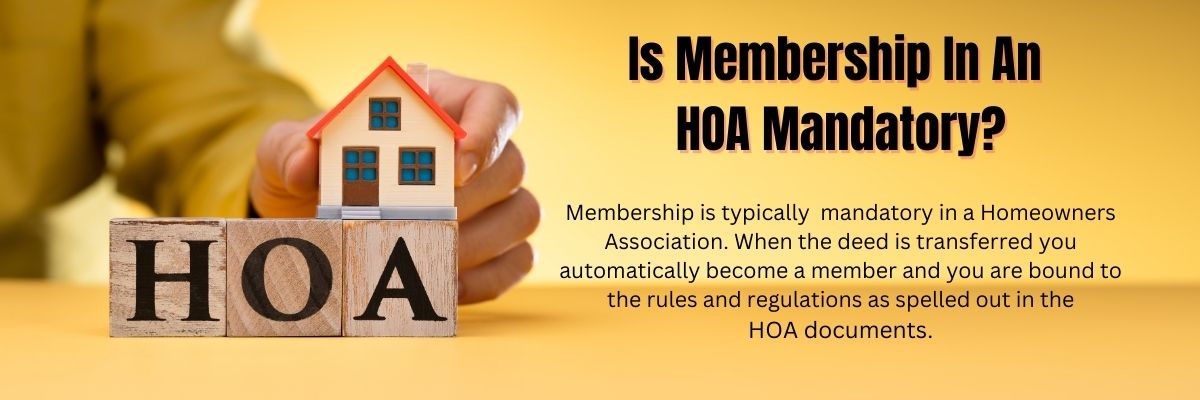
Legal Framework and Governance of A Homeowners Association
The formation of the HOA, how it is governed, how it handles finances, and the rules and regulations are not at will. There are documents filed at the registry of deeds that spell out the organization’s details.
It is essential to review the formation, rules, and procedures of the HOA before purchasing in a community.
- Governing Documents of an HOA: The Declaration of Covenants, Conditions, and Restrictions (CC&Rs), bylaws, and articles of incorporation are the core legal documents that dictate how the HOA operates. These documents outline the rules, regulations, and governance structure of the HOA.
- Legal Rights and Obligations of HOA Members: Members of an HOA are typically homeowners in the community. They have certain rights, such as voting on HOA matters, and obligations, including adhering to community standards and paying fees or dues.
- Dispute Resolution and Compliance Issues: HOAs usually have mechanisms for resolving disputes between the association and the residents or among residents. Compliance with HOA rules is essential; the governing documents often outline the procedures for dealing with violations.
Financial Aspects of A Homeowners Association
Common ownership of shared spaces is the number one reason why there is a need for a community association. Those shared spaces need to be maintained and paid for by the community. A portion of the cost is assigned to each member.
Understanding HOA Fees and Assessments: HOA fees are mandatory for residents in these communities. These fees cover maintaining communal spaces, amenities, and other HOA operations. On the other hand, assessments are additional fees that may be required for unexpected repairs or improvements.
Budgeting and Financial Management in an HOA: Financial management is critical to an HOA’s board of directors. They are responsible for creating a budget that covers all necessary expenses while keeping the HOA fees reasonable.
Benefits of Living in an HOA-Managed Community
Maintenance Is Centralized
HOAs typically ensure that shared spaces like lawns, pools, parks, and clubhouses are regularly maintained and in good condition. In the condominium complex, hallways, building exteriors, decks, and such are part of the regular maintenance. The maintenance just happens, and you do not have to get involved in the day-to-day.
Community Standards
HOAs enforce rules that help maintain a consistent and pleasant aesthetic in the neighborhood with the enjoyment of all, which can enhance property values.
Dispute Resolution
HOAs provide a structured way to handle disputes between neighbors, often leading to more harmonious community relations.
Access to Amenities
Many HOA communities offer amenities such as gyms, pools, and community centers that might need to be more affordable or practical for an individual homeowner.
Increased Property Values
An HOA’s overall maintenance and uniformity can lead to stable or increased property values within the community.
Challenges and Criticisms of HOAs
Common Complaints and Issues Faced by HOA Members: Issues such as perceived overreach by the HOA board, high fees, and restrictive rules are common criticisms many Homeowner Associations face.
Balancing Individual Rights with Community Standards: One of the key challenges for HOAs is finding a balance between maintaining community standards and respecting the individual rights of residents.
Strategies for Addressing Conflicts within an HOA: Effective communication, transparent governance, and fair dispute resolution processes are essential to address conflicts within an HOA.
Homeowner Associations and The Effects on Real Estate
HOAs are a necessity when there is shared property in a community. The cost of maintenance on the governing of the community property needs to be managed.
A well-run association can undoubtedly be an asset and increase property values. On the other hand, it could be better run, and it can scare away potential owners who are considering buying in your community.
Selling A Home That Is Part of An Association
The unknown can be met with skepticism when selling your home. Be prepared with all the necessary documents and answers to common questions as not to delay your closing. Gather the appropriate information before selling your home.
Having the document to turn over to a potential home buyer will go a long way in strengthening their confidence in buying into a community with an HOA.
Buying A Home That Is Part of An Association
Make sure you review all the appropriate documents of the HOA. You automatically become a member when the deed is transferred to you. Subsequently, you agree to abide by the governing and rules of the homeowners association.
Before purchasing, ensure you are comfortable with the rules of the HOA to ensure the enjoyment of your new home. If you have any questions, make sure you consult an attorney.
Future of HOAs
Emerging Trends and Changes in HOA Management: Trends such as increased transparency, use of digital tools for management and communication, and a focus on environmental sustainability are becoming more prevalent in HOA management.
Sustainability and Technology in HOA Communities: Many HOAs are moving towards sustainable practices, like installing energy-efficient amenities and promoting environmentally friendly community activities. The use of technology for efficient management, such as online platforms for communication and payments, is also on the rise.
Predictions for the Future Role of HOAs in Housing: The role of HOAs is likely to evolve with changing homeowner expectations and societal trends. This could include more active roles in community welfare and adapting to demographic shifts.
7 Common Questions About HOA’s
When learning about what an HOA is and understanding what it is like to live in an HOA-governed community, some common questions will arise.
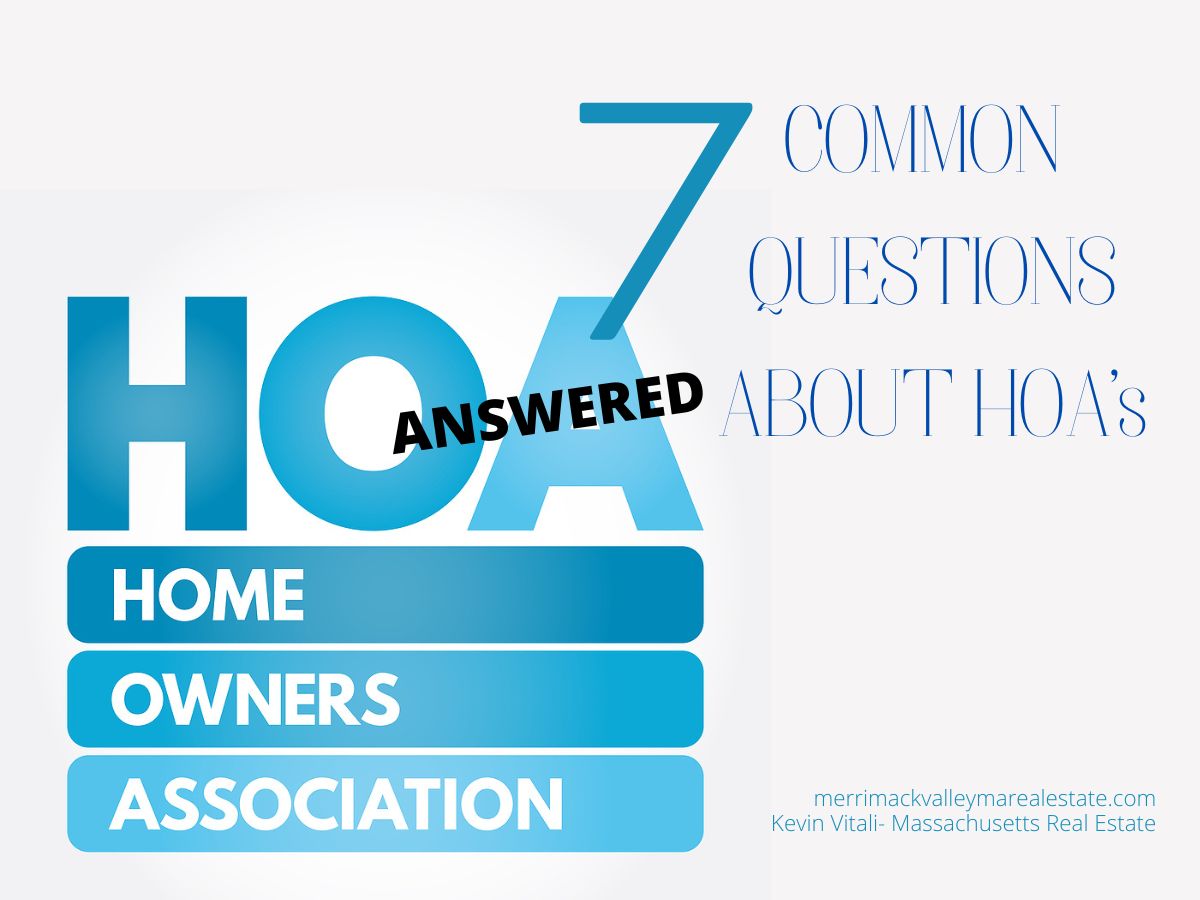
Is Membership to An HOA Mandatory?
Yes, when purchasing a home or condominium, there is a covenant in the deed where you agree to the terms of membership in the HOA. It is not optional.
By buying a home in a community governed by an HOA, you have also agreed to be a member of the HOA, follow all the rules and regulations, and pay any required fees to the Homeowners Association.
Are HOA’s Non-Profit?
By default, most Home Owner Associations are non-profit and are governed by members in non-paid positions.
Financially, an HOA’s purpose is to maintain the community, not make a profit. The benefit is maintaining a community without one person benefits from the HOA.
Do I Have To Pay Fee’s To Be A Member Of An HOA?
With membership in an HOA comes fees and special assessments. Most commonly, you will hear people reference condo fees. Or in a single-family neighborhood, they will be called HOA fees.
These fees go towards the management and maintenance of the community that is commonly shared by all.
Can An HOA Raise Its Fees?
An association can raise its fees as it deems necessary. The bylaws spell out how and when a board can raise condo fees or impose special assessments. Small increases could just happen and larger ones would be voted on.
Remember, your fees cover a budget and it costs money to maintain your community. Costs to maintain a community rise with inflation and so will your condo fees at some point.
Are There Rules To Be Followed?
Being a member of a Home Owners Association also means there are rules to be followed. The rules and regulations can vary greatly based on the needs of the communities. Some of the rules can be:
- How to maintain your property
- Quiet hours
- Restriction of commercial vehicles
- Pet restrictions
- Parking
- Use of common areas
- Etc…
While at times the rules of an HOA may seem cumbersome they are put in place to create cohesiveness to the community as well as to provide peaceful enjoyment for all the members.
And yes, by buying a condo or in a neighborhood governed by an HOA you are automatically agreeing to the rules and they must be followed.
How Is An HOA Governed?
The governing of a Home Owners Association can vary but in general, a Board of Trustees is elected by the general membership to run the day to day operations of the association. You do have a say in who you elect and how things are run often through a vote on larger issues.
The running of the HOA is spelled out in the Bylaws in the Declaration of Trust that is recorded at the formation of the HOA. The Declaration of Trust is usually very detailed in how the Board is to run the HOA including how they spend money, how decisions are made and the voting rights of the members.
Can An HOA Enforce Its Rules And Regulations?
For the most part, an HOA can enforce its rules and regulations. By buying into an HOA-governed community, you agree to the terms of being a member.
Violating membership terms can include fines and legal actions against you.
Conversely, if one of your neighbors is violating the rules, the HOA is legally obligated to take action as well. It goes both ways.
Living In A Community With A Home Owners Association
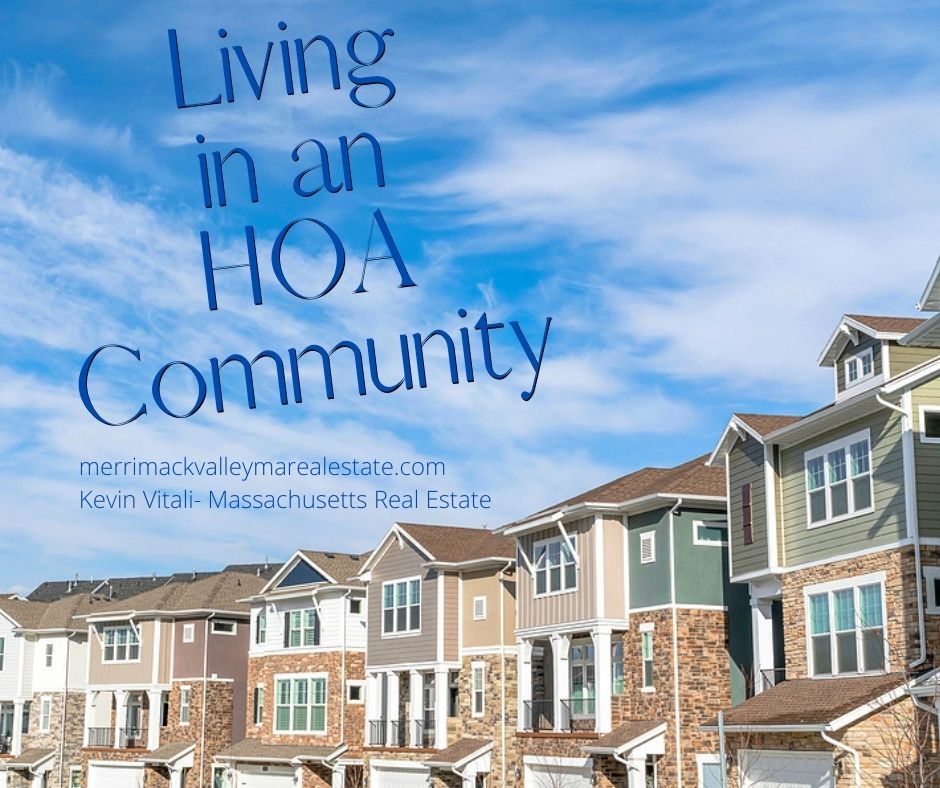
Many things may be taken care of for you in a large community. Condominium HOA’s often provide landscaping, snow removal, exterior maintenance, etc… things you no longer have to worry about.
But realize things are done a certain way, it may not be how you would do it, it may not be in the time frame you would like it done in. You lose some control.
The first step to living in an HOA run community is to understand what you are getting into before you purchase. Review the declaration of trust, master deed, bylaws and the rules and regulations. Have a basic understanding of how the governing of your HOA will work and what rules you are expected to adhere to.
Do a little research and find out if the members are generally happy and if things are running smoothly. Homeowner Associations can be undermanaged or overmanaged, neither is a good thing.
Every Home Owners Association can be drastically different. Don’t assume anything. Review the documents.
If you do become a member of a Homeowners Association, become involved. At least know what is happening at the meetings and with the budgets. Better yet consider becoming a board member and being actively involved in the day-to-day operations.
5 Tips For Living In An HOA Community
- Know the rules of the community.
- Be a good neighbor and abide by the rules.
- Know what is going on with the association by reading newsletters and attending meetings.
- Participate in HOA meetings and consider becoming a board member.
- Take advantage of what your community has to offer.
The HOA is meant to provide a cohesive community, provide maintenance of all common areas and provide peaceful enjoyment to all of its residents. That is generally not a bad thing. A well-run community adds value to the homes within the community.
It is a personal decision if you want to buy a home run by a Homeowners Association.
Other Real Estate Resources:
- Are you a condominium buyer? What do you need to know when buying a condo? Bill Gassett provides tips for condominium buyers. One big tip is to read the documents and know what you are getting into by belonging to an HOA.
- Purchasing a condo is a little different than a single-family home. There are additional layers to look into, like the HOA management and condo fees, and what do those fees cover? Jeff Nelson provides some great questions to ask when purchasing a condo.
- Paul Sian covers some pros and cons of buying and owning a condominium. Much of the exterior maintenance can be taken care of for you, but you also lose some control. Is condo ownership right for you?
Conclusion
Homeowners’ associations play a crucial role in shaping residential communities, whether they are condominium complexes or planned subdivisions. T
They offer maintenance and community engagement benefits but also come with responsibilities and challenges.
Homeowners must understand the nuances of HOAs to ensure a harmonious and beneficial living experience.

Author Bio
Kevin Vitali is a Massachusetts REALTOR out of Haverhill MA that serves Essex County and Northern Middlesex County in Massachusetts. If you want to buy or sell a home, let me use my years of experience to get you the best possible outcome.
Feel free to contact me to discuss any upcoming moves. I am always happy to answer your questions
Call 978-360-0422 Email kevin@kevinvitali.com


